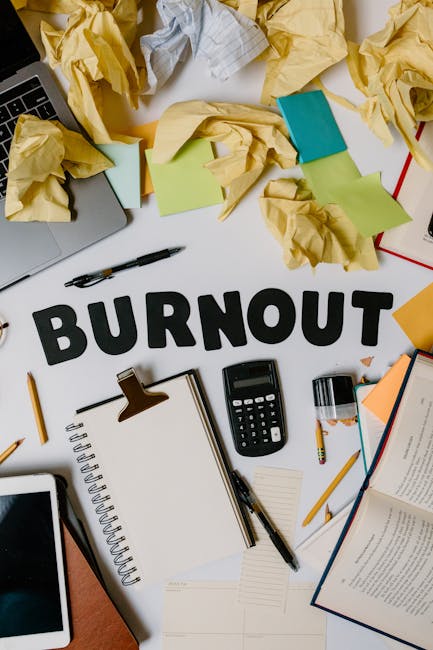Turning anxiety into a source of motivation might sound like trying to turn lemons into lemonade, but it’s entirely possible—and incredibly rewarding. Anxiety, while often seen as a roadblock, can actually be the fuel that drives you toward your goals. If you’ve ever felt like your nerves were holding you back, keep reading. This guide will show you how to flip the script and use that nervous energy to your advantage.
Key Takeaways
- Anxiety is a natural response that can be reframed as a positive force.
- Understanding the science behind anxiety helps you harness its energy.
- Practical strategies like mindfulness, exercise, and breaking tasks into smaller steps can transform anxiety into productivity.
- Recognizing burnout signs is crucial to maintaining motivation without overloading yourself.
Understanding Anxiety
Defining Anxiety and Its Role in Our Lives
Anxiety is like that overzealous friend who always wants to protect you. It’s your brain’s way of saying, “Hey, something might go wrong—be ready!”
While it’s normal to feel anxious before a big event or decision, chronic anxiety can feel overwhelming. But here’s the twist: anxiety isn’t just a villain. It’s also a motivator. That racing heart and sweaty palms? They’re signs your body is gearing up to tackle a challenge.
The Science Behind Anxiety and Motivation
When you’re anxious, your brain releases adrenaline and cortisol—hormones that prepare you for action. This is the classic “fight or flight” response.
But here’s the kicker: these same hormones can boost focus, energy, and determination. It’s all about how you channel them. By understanding this biological response, you can turn anxiety into a turbo boost instead of a roadblock.
Reframing Anxiety as a Positive Force
Think of anxiety as a fire. Left unchecked, it can burn out of control. But when managed, it can light your path.
Reframing anxiety starts with changing your mindset. Instead of thinking, “I’m so nervous,” try saying, “I’m excited to tackle this challenge.” This simple shift can make a world of difference.

Turning Anxiety into Your Superpower
Recognizing Anxiety as a Source of Energy
Anxiety is like a battery. It stores energy that you can use to power through tough situations. The trick is learning how to tap into it.
Start by identifying what triggers your anxiety. Is it public speaking? Deadlines? Once you know the source, you can channel that energy into preparation and action.
Shifting Perspective: Viewing Anxiety as a Tool for Growth
Every time you face anxiety, you’re stepping out of your comfort zone—and that’s where growth happens.
Think about it: the most successful people often credit their achievements to moments of discomfort. Anxiety pushes you to prepare, to improve, and to rise to the occasion.
Success Stories: High Achievers Who Harnessed Anxiety
Did you know that many high achievers, from athletes to CEOs, have used anxiety to their advantage?
Take Michael Phelps, for example. He once said that his pre-race nerves were what kept him sharp and focused. By embracing his anxiety, he turned it into a competitive edge.
For more insights on how high achievers overcome anxiety, check out this helpful guide (source).

Managing Nervous Energy: Transforming Anxiety into Productivity
Identifying Triggers and Redirecting Nervous Energy
The first step to managing anxiety is understanding what sets it off. Is it a looming deadline? A difficult conversation?
Once you’ve identified your triggers, redirect that nervous energy into something productive. For example, channel pre-presentation jitters into practicing your speech.
Practical Strategies for Channeling Anxiety
Exercise and Physical Activity
Physical activity is a fantastic way to burn off excess nervous energy. Whether it’s a brisk walk, yoga, or a full-on gym session, moving your body can calm your mind.
Creative Outlets and Hobbies
Sometimes, the best way to manage anxiety is to lose yourself in something you love. Painting, writing, or even gardening can help you process your emotions and refocus your energy.
The Role of Mindfulness and Meditation
Mindfulness is like hitting the pause button on your racing thoughts.
By practicing mindfulness or meditation, you can train your brain to stay present and calm. This not only reduces anxiety but also boosts your overall mental well-being.
For more tips on reducing anxiety and promoting mental health, check out this resource (source).

Breaking Tasks into Bite-sized Pieces
The Pomodoro Technique: A Structured Approach to Work
The Pomodoro Technique is a game-changer for anyone feeling overwhelmed.
Here’s how it works: set a timer for 25 minutes and focus on one task. When the timer goes off, take a 5-minute break. This method helps you stay productive without burning out.
ADHD-Friendly Productivity Hacks for Managing Anxiety
If you struggle with focus, try breaking tasks into smaller, manageable chunks.
For example, instead of writing an entire report in one sitting, aim to complete just the introduction. Small wins build momentum and reduce anxiety.
Setting Realistic Goals and Celebrating Small Wins
Setting realistic goals is key to staying motivated.
When you achieve a small milestone, celebrate it! This positive reinforcement keeps you moving forward. For more on setting achievable goals, check out this article (source).

The Path to Burnout: Recognizing the Signs and Strategies for Prevention
Understanding the Link Between Anxiety and Burnout
Anxiety and burnout often go hand in hand. When you’re constantly in “go mode,” it’s easy to overdo it.
Burnout doesn’t happen overnight. It’s the result of prolonged stress and exhaustion.
Early Warning Signs of Burnout
Watch out for signs like constant fatigue, irritability, and a lack of motivation.
If you notice these red flags, it’s time to hit the brakes and recharge.
Strategies to Prevent Burnout While Staying Motivated
Preventing burnout is all about balance.
Make time for self-care, set boundaries, and don’t be afraid to say no. Remember, you can’t pour from an empty cup.
For more tips on staying motivated without overloading yourself, check out this article (source).
Embracing Effort at Any Age: The Key to Lifelong Fulfillment
Cultivating a Growth Mindset to Overcome Anxiety
A growth mindset is the belief that you can improve through effort and learning.
When you view challenges as opportunities, anxiety becomes a stepping stone rather than a stumbling block.
Building Resilience Through Effort and Persistence
Resilience is like a muscle—the more you use it, the stronger it gets.
By facing your fears and pushing through discomfort, you build the mental toughness needed to handle future challenges.
Finding Fulfillment by Turning Anxiety into Drive
At the end of the day, anxiety is just energy waiting to be directed.
When you learn to harness it, you’ll find a sense of purpose and fulfillment that makes all the effort worthwhile.
For more on how motivation can help you overcome challenges, check out this resource (source).

Anxiety doesn’t have to be your enemy. With the right mindset and strategies, it can become your greatest ally. So, the next time you feel those butterflies in your stomach, remember: they’re just trying to help you fly.
FAQ: Turning Anxiety Into A Source Of Motivation – Your Guide to Harnessing Inner Energy
What does it mean to turn anxiety into motivation?
Turning anxiety into motivation means reframing the nervous energy and fear associated with anxiety into a driving force for action and productivity. It involves recognizing anxiety as a signal to prepare and channeling it into constructive efforts rather than letting it paralyze you.
Why is anxiety often seen as negative?
Anxiety is frequently viewed as negative because it can lead to discomfort, overthinking, and avoidance behaviors. However, it is a natural response to stress that, when managed effectively, can serve as a catalyst for growth and achievement.
How can I identify when anxiety is becoming a problem?
Anxiety becomes problematic when it interferes with daily life, relationships, or work. If it leads to constant worry, physical symptoms like headaches or fatigue, or avoidance of important tasks, it might be time to seek strategies to manage it or consult a professional.
What are some practical steps to transform anxiety into motivation?
Practical steps include acknowledging your anxiety, breaking tasks into smaller, manageable goals, practicing mindfulness, and using positive self-talk. Physical activity and breathing exercises can also help redirect anxious energy into productive action.
Can anxiety actually improve performance?
Yes, in moderate amounts, anxiety can enhance focus, alertness, and preparation, which can improve performance. This is often referred to as ‘eustress,’ a positive form of stress that motivates and energizes you to meet challenges.
What role does mindset play in managing anxiety?
Mindset plays a crucial role. Viewing anxiety as a challenge rather than a threat can help you approach situations with a sense of control and purpose. A growth mindset encourages learning from anxiety-inducing experiences and using them as opportunities for personal development.
Are there any tools or techniques to help reframe anxious thoughts?
Cognitive-behavioral techniques, such as identifying and challenging negative thoughts, journaling, and practicing gratitude, can help reframe anxious thoughts. Visualization and affirmations can also shift your perspective from fear to empowerment.
How can I maintain motivation without letting anxiety take over?
To maintain motivation, set realistic goals, celebrate small wins, and focus on progress rather than perfection. Regular self-care, such as adequate sleep, exercise, and relaxation techniques, can help keep anxiety in check while sustaining your drive.
Is it possible to completely eliminate anxiety?
It is unlikely to completely eliminate anxiety, as it is a natural human response. However, you can learn to manage it effectively and use it as a tool for growth. Accepting anxiety as part of life can reduce its power over you.
When should I seek professional help for anxiety?
You should consider seeking professional help if anxiety becomes overwhelming, persistent, or interferes with your ability to function in daily life. Therapists and counselors can provide tailored strategies and support to help you manage and transform anxiety.



